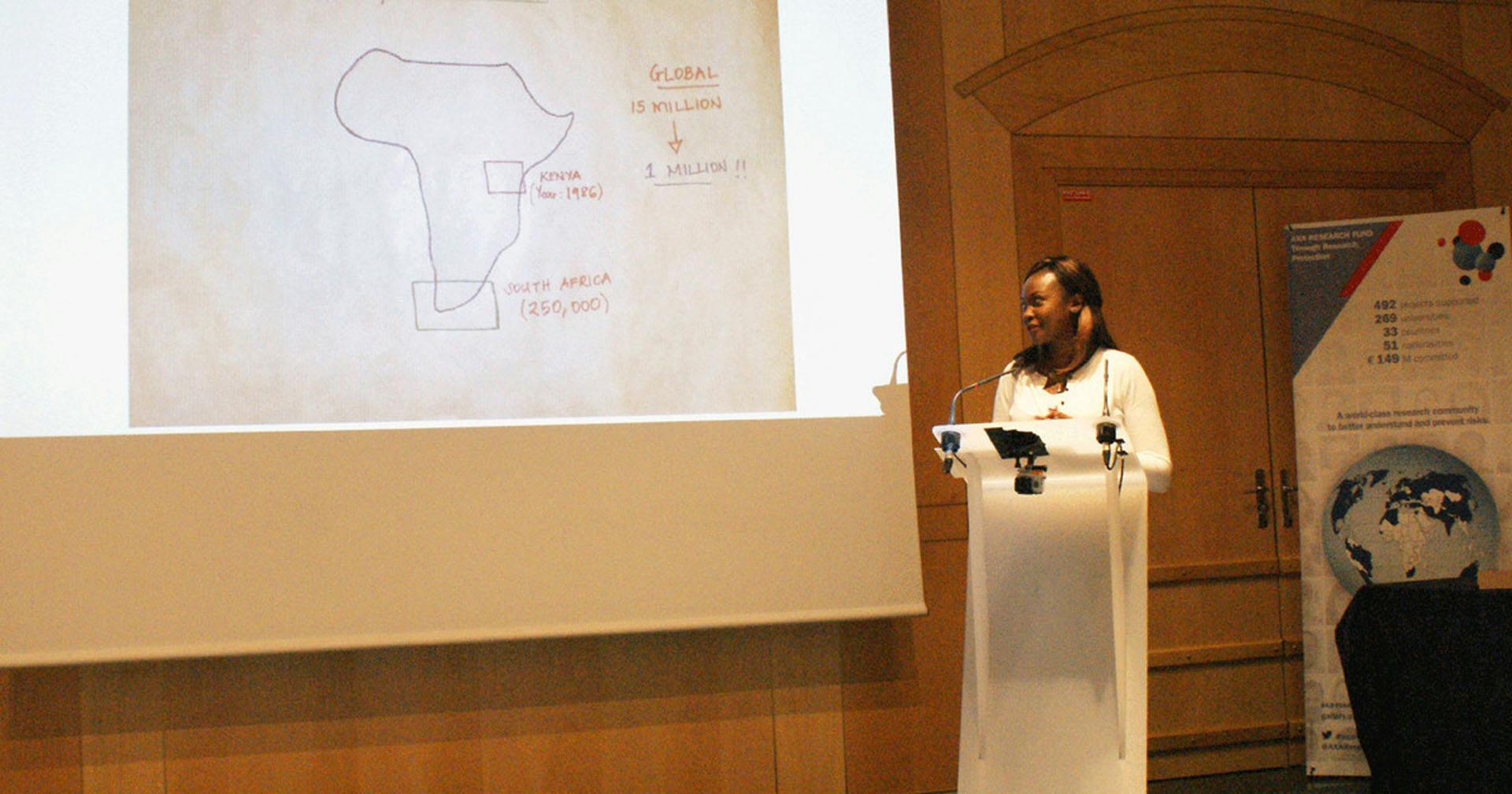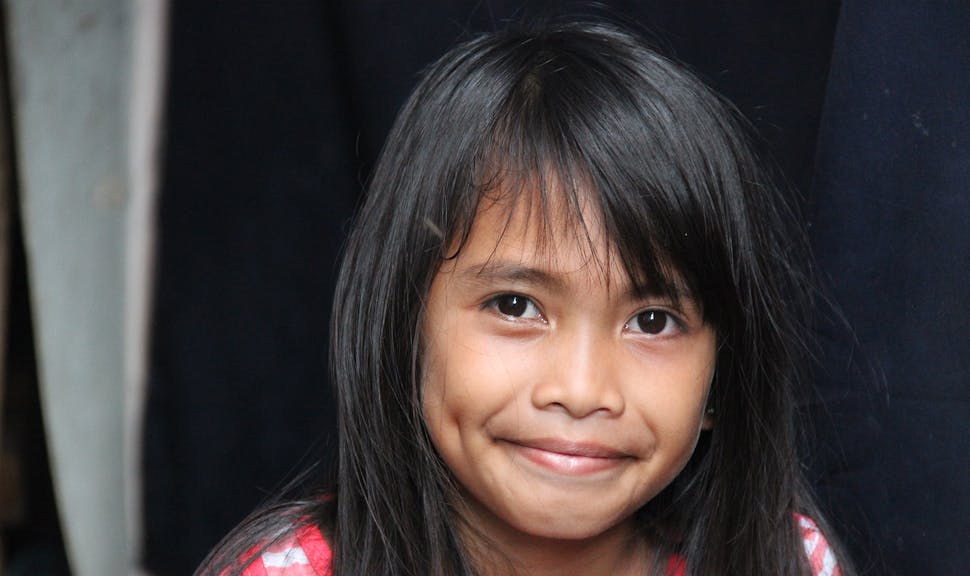
December 1, 2016
Dr. Nadia Chanzu: Fighting HIV’s risks in Africa
Nadia Chanzu is a young Kenyan scientist, passionate about HIV research and committed to making science progress in sub Saharan Africa. She has been awarded by the AXA Research Fund a fellowship at the University of Cape Town to study the links between HIV infected moms and preterm births.
3 minutes
Nadia started her researches in her home town of Nairobi, Kenya. She used to study at the University of Nairobi on infectious diseases. This is where her passion for HIV research was birthed, when she was involved in a project among a cohort of HIV infected female sex workers in Nairobi.
At that time it became evident to me that I needed to contribute to reducing the spread of the disease. HIV is a huge concern in sub Saharan Africa and this cannot be ignored
, says Nadia.
HIV – Key figures
ART (antiretroviral therapy) is the result of decades of research in HIV. It now enables to prevent transmission of the virus from the mother to the child during pregnancy. However, although the children are born HIV uninfected, these children are at an increased risk of being born premature and they also have a very poor quality of life during their first year of infancy. This is why Nadia chose to work on this issue:

Nadia Chanzu
AXA Research Fellow
Every year in South Africa, nearly 250,000 HIV exposed uninfected infants are born. Prematurity is also a leading cause of child deaths in South Africa. It is time for us to change our focus to the quality of life of children born to HIV infected mothers.
Nadia believes that the connection between HIV/ART and adverse pregnancy outcomes has to do with the delicate balance of an expectant mother’s immune system with the developing baby. She is thus analyzing placenta and the immune cells it contains to understand why HIV-positive pregnant women are significantly more likely to give birth prematurely, and ultimately to find a way to prevent this risk.
Nadia has been awarded a fellowship by the AXA Research Fund in 2015, which will enable her to work at the University of Cape Town (UCT) from 2016 to 2019 in order to mitigate the numbers of premature births that occur in vulnerable populations in South Africa.
Nadia's research will have a direct impact on public health, hopefully providing a foundation to inform alternative therapies and alleviate the risks associated with pregnancy in HIV-infected mothers. She says South Africa, and UCT in particular, is the ideal place for her to continue this research.
Having the opportunity to undertake the AXA Fellowship at UCT at the Division of Immunology will give me access to cutting-edge technology and expertise that is currently lacking in my home country, Kenya.
2016’s World AIDS Day
Since 1988, December 1st is dedicated to raising awareness of the AIDS pandemic, caused by the spread of HIV infection. The red ribbon is the global symbol for solidarity with HIV-positive people and those living with AIDS.
AXA PPP Healthcare and AXA Prévention in France contribute to raising awareness on the HIV virus by delivering advice to prevent its spread. Throughout AXA’s international volunteer program, prevention and solidarity actions are undertook all year in most entities of the Group to fight AIDS all over the world.
About the AXA Research Fund
The AXA Research Fund was created by the AXA Group in 2007 to support outstanding risk research projects and share this knowledge with the broadest possible audience. In nine years, the AXA Research Fund has committed more than €149 million to support 492 research projects in 33 countries and to help researchers strengthen their contributions to public dialogue on climate, socio-economic and health issues.
The AXA Research Fund also supports the researches of Dr. Sophie Harman, working at Queen Mary University of London on the access of Tanzanian women to HIV treatment. She aims to understand why although free treatment and care is often available, a mere one-third of those eligible make use of it. Dr. Harman is studying the social risks associated with accessing care. Discover more about her research.



